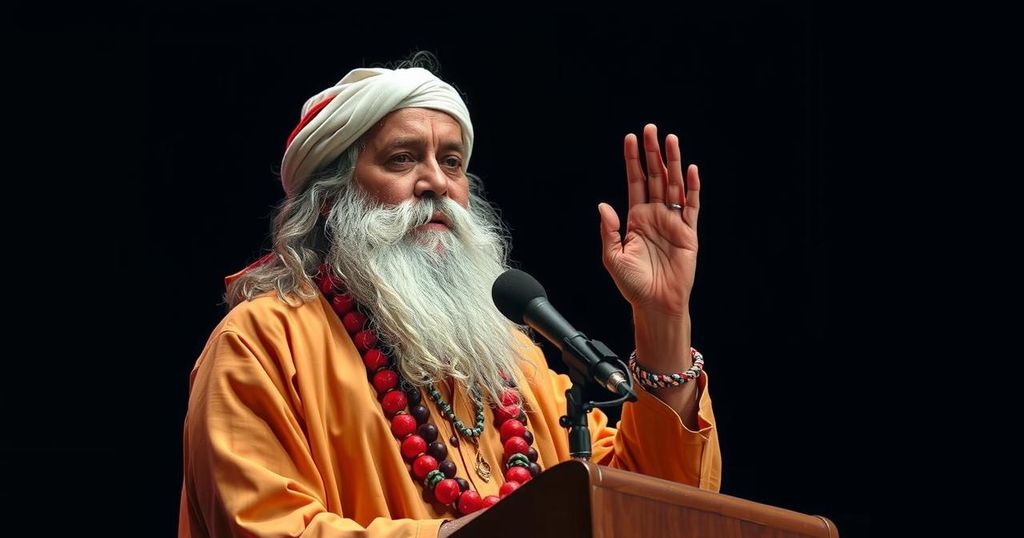Following Donald Trump’s election victory, Sadhguru delivers an important message about soil health at COP29, warning of its degradation and its impact on food nutrition, migration, and economic stability for ordinary Americans. He emphasizes soil’s critical role as the foundation of life and advocates for legal standards to maintain its health, highlighting the need for a balance between economic and ecological priorities.
In light of Donald Trump’s recent electoral victory, Indian spiritual leader and environmental advocate Sadhguru has emphasized a critical message regarding soil health directed at Americans. Presently at COP29 in Baku, Azerbaijan, Sadhguru highlighted the alarming degradation of soil across the globe, with his organization estimating that over 50 percent of the world’s soil is diminished. He expressed concern about the implications this has for farmers’ livelihoods, food nutrition, and even migration trends. Sadhguru asserted that the focus of the United States will likely shift predominantly to economic matters under Trump’s leadership, given the former president’s history of opposing stringent environmental regulations. He warned that the neglect of soil health could lead to serious consequences, suggesting that national discourse is currently overshadowed by economic concerns. “So right now, in the United States, this is happening—the economic situation is such that slowly, to maintain the lifestyles they were used to is becoming difficult for ordinary people,” he noted. Sadhguru classified soil as a foundational element of life, stressing its significance over more frequently discussed issues like fuel prices. He stated, “Soil is the largest living system…it has trillions of species of organisms. And a living system like that is the foundation [of] life for all of us.” The spiritual leader highlighted how soil degradation not only affects food quality but also influences migration dynamics. He referenced the sharp drop in nutritional value in agricultural produce, asserting that in order to gain the same nourishment from modern oranges as was available in the 1920s, one would have to consume eight oranges today. Sadhguru also advocated for a new paradigm of ownership in agricultural practices, proposing that maintaining a minimum soil organic content of 3 percent, as recommended by the United Nations, should be a legal requirement for landowners. Unfortunately, he reported that no nation meets this standard, with the U.S. averaging merely 1.2 percent organic content. He attributes much of this degradation to the over-reliance on chemical fertilizers, which have led to a decline in organic practices. To conclude, Sadhguru articulated a deep responsibility towards future generations regarding soil stewardship, asserting, “Soil is not our property; it is a legacy…and it is our fundamental responsibility to pass it on that way to future generations.” His hope is that economic stability can pave the way for discussions on environmental health.
The degradation of soil is a pressing global issue with significant ramifications for agriculture, food security, and environmental sustainability. Sadhguru, a noted proponent of environmental conservation, has been vocal about the necessity to restore soil health, highlighting that over half the world’s soil is compromised. The implications of soil deterioration extend beyond agriculture; they include economic challenges for farmers, diminished nutrition in food supplies, and contributing factors to migration. The intersection between economic stability and ecological health is particularly pivotal in discussions about policy and governance.
Sadhguru’s address encapsulates the urgent need for soil health to regain prominence in national conversations, especially in the context of America’s evolving political landscape. He presents a compelling argument that acknowledges the correlation between economic conditions and ecological responsibilities, urging leaders and citizens alike to recognize that a healthy environment is integral to sustenance and wellbeing. His insights underscore the necessity of integrating ecological considerations into economic policies to safeguard both earth and humanity’s future.
Original Source: www.newsweek.com







